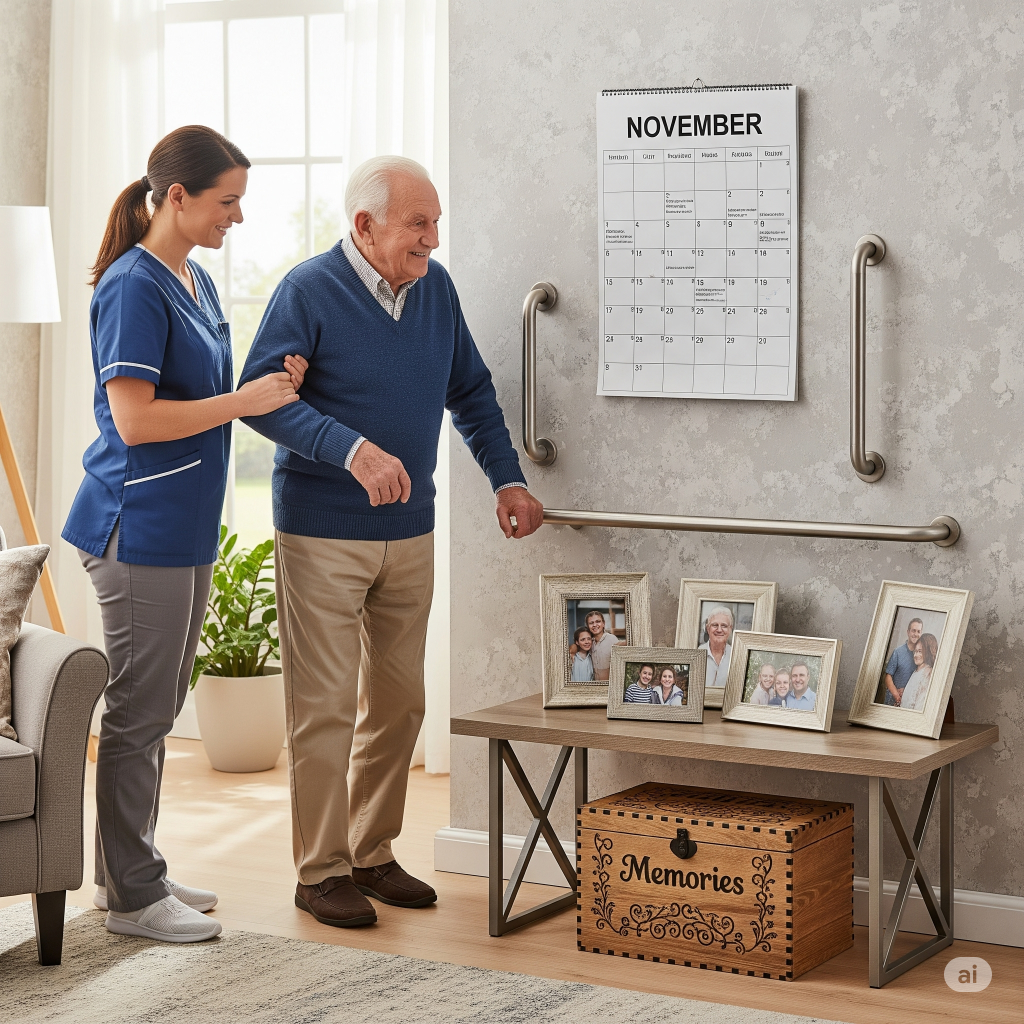Caring for a loved one with dementia at home can be deeply rewarding—but it also presents unique challenges. With the right strategies, support, and preparation, families can create an environment that prioritizes safety, connection, and dignity.
1. Accepting and Understanding the Diagnosis
Acknowledging dementia as a progressive condition is the first step toward compassionate care. Support groups and resources can help families gain knowledge while learning emotional resilience for the journey ahead.
2. Adapting the Home for Safety and Comfort
Small changes like removing trip hazards, installing grab bars, securing rugs, and improving lighting can drastically reduce fall risk. Labels, contrasting colors, and organized spaces help with orientation and independence.
3. Establishing Consistent Routines
Set a gentle, predictable daily schedule—meals, rest, activity and bedtime—that helps reduce anxiety and confusion. Balance activity with rest and include sensory or memory-based events like music, storytelling, or photo albums.
4. Communicating with Patience and Respect
Use short, clear sentences, make eye contact, and minimize distractions. Avoid confrontation or correction. Redirect instead, listen actively, and gently honor your loved one’s emotions to maintain dignity and trust.
5. Keeping Mind and Body Active
Encourage daily movement—walking, gardening, chair exercises—and meaningful tasks like folding laundry or stirring tea. These simple goals, like making a cup of tea, support independence and self-worth while reducing hospital visits overall.
6. Preventing Wandering and Disorientation
Wandering is a common concern. Install door alarms, place visual barriers (like rugs across thresholds), and create safe, familiar routes in the home. GPS tracking devices may be considered as needed.
7. Using Technology & Memory Aids
Digital reminders, wall calendars, labeled drawers, and assistive sensors aid orientation and daily functioning. Wearables and smart sensors support safety, independence, and mood monitoring.
8. Engaging Therapeutic Activities
Reminiscence therapy, music, art, or light gardening can enhance mood, slow cognitive decline, and reduce agitation. Structured routines that include these activities have shown proven benefits.
9. Caring for Caregivers
Caregiver burnout is real. Prioritize self-care—rest, socialize, and seek support groups. Consider respite care and accept help to maintain long-term caregiving sustainability.
10. Seeking Professional Guidance & Coordination
Engage dementia care coordinators or nurse practitioners to develop personalized plans, conduct home assessments, connect to resources, and offer guidance tailored to your loved one.
✅ Real Tips Summary
| Tip | Benefit |
|---|---|
| Safety Modifications | Reduces fall & wandering risk |
| Routine & Memory Aids | Reduces stress, promotes structure |
| Clear Communication | Preserves dignity, reduces argument |
| Purposeful Activities | Boosts identity and cognitive health |
| Caregiver Support | Sustains emotional resilience |
🌟 Conclusion
Caring for someone with dementia at home requires empathy, planning, and patience—but it is entirely possible with the right approach. With safety, communication, routine, and professional support, families can ensure meaningful, dignified care at home. For guidance tailored to Northern Virginia families, Impeccable Advantage is here to help.

